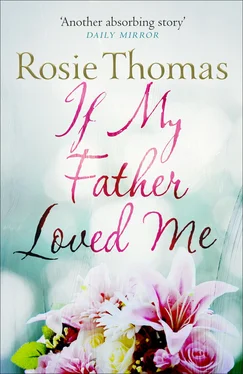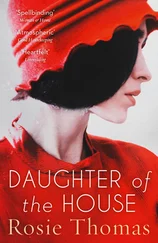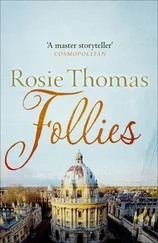‘What did the doctor say?’
‘That you have had a heart attack. They’re monitoring you and waiting to see what will happen over the next few days.’
‘Yes?’
‘She sounded optimistic.’
But my tongue felt as though it was sticking to the roof of my mouth. Coward, coward, coward . I shouldn’t be lying to him, but my father and I were not used to talking to each other about matters like love, or guilt, or disappointment. Was I supposed to start now, going straight to dealing with impending death? And how was I going to say it? You are going to die. And so I want to tell you that I love you, even though I haven’t said so in forty years, and that love is in spite of everything, not because of it?
I bit my lower lip until distracting pain flooded round my mouth.
Ted only nodded, lying wearily against his pillows. He was looking away from me, out of the window at the grey angle of building and the narrow slice of cloudy sky that was the only view from his bed.
If he asks anything else, I resolved, I will tell him the truth. If he wants to know whether he is dying, he will ask me. Then we can hold each other. I will put my arms round him and help him and look after him, whatever is coming.
I waited, trying to work out the words that I would use and listening with half an ear to the sound of trolleys moving on the ward. A nurse walked past the door with a pile of linen in her arms and I watched her black-stockinged ankles receding.
The silence stretched between us. I rubbed the skin on the back of Ted’s hand with the ball of my thumb, noticing how loose and papery it felt. He didn’t say anything, but the muscles of his chin and throat worked a little, as if he wished that he could. As the minutes passed I began to long for talk, even if it didn’t mean much, or anything at all, just so long as there was some exchange between us.
The last few times we had seen each other, Ted reminisced about the war and about the make-do years that followed it when he was first married to my mother. He talked a lot about the glory days of the Fifties too, when he was discovering that he could follow his nose into a career that allowed him to meet rich women and powerful men. He spoke of the old days with a longing for his lost kingdoms, although oddly enough he never romanticised his gift itself. (He was always matter-of-fact about the mystery of creating perfumes. ‘It’s chemistry, memory and money,’ he used to say. ‘And mostly money.’)
I thought now that maybe I could reach out to him by talking about the past, even though it was such a quagmire. I tried harder, flipping through the scenes in my mind’s eye, searching for some neutral time that I could offer up. ‘Do you remember that day when you took me in to the Phebus labs? I must have been six or seven, I should think.’
‘Old Man Phebus,’ Ted said quietly.
I can’t remember why Ted took me to work with him on that particular morning. Maybe my mother was ill, or had to go somewhere where she couldn’t take me. Outside school hours she and I were usually at home, occupied with our quiet routines that were put aside as soon as Ted came in. We were happy enough on our own together, Faye and I, yet even when I was very young I understood that hers was a make-do contentment. It was only when Ted was there that I saw her smile properly. For people in shops, occasional encounters with neighbours, even for me, there was a tucked-in version bleached by melancholy. Because I didn’t know anything different I thought that was how it was for all families. Fathers went out and eventually came back, redolent of the outside world, and mothers and children waited like patient shells to close themselves round this life-giving kernel.
That day Ted and I travelled to work by bus, and I sat close up against my father in the blue, smoky fug on the top deck. It was exciting to ride so high above the streets, and to be able to look straight in through smeary windows and see cramped offices and the rumpled secrets of half-curtained bedsits. Phebus Fragrances occupied a small warehouse building off Kingsland Road, in Dalston, on the fringe of the East End. It seemed very far from our house in a north London suburb. There was a bomb-site to one side of the warehouse, and summer had turned the piled rubble lush with the blue-purple wands of buddleia and the red-purple of willowherb. It must have been the school holidays because there were children out playing on the open space. I held my father’s hand as we walked from the bus stop and felt sorry for them because they weren’t going to work as I was.
Anthony Phebus was Ted’s earliest mentor in the perfume business. Ted always called him the Old Man. Ted had started working for him not long after I was born, as a bookkeeper and general office administrator, although of course he didn’t actually have any bookkeeping skills or relevant office experience. In the years after the war he did a variety of jobs, from van-driving to working as a garage hand, but when I was born he decided that it was time to move up in the world. He applied for the job with Mr Phebus and impressed the old man so much with his apparent expertise with figures that he was offered the position on the spot. I knew this part of the story well, because Ted liked to tell it with a wink.
‘I learned on the job.’ He smiled. ‘Always the best way. You don’t know what you’re going to be able to do until you have to do it, and when you have to it’s surprising what you can do.’
In any case, Ted Thompson didn’t stay long with the ledgers and file cabinets in the outer office. Anthony Phebus’s business was as a commercial fragrance supplier. If a perfume house wanted to design a new scent, or if a manufacturer of face powder or shampoo needed a fragrance to set off a new product, they commissioned Mr Phebus to develop one for them. In his laboratory, with a tiny staff and minimal investment, the old man would mix and sniff and frown and adjust and finally come up with a formula that he would sell to the manufacturer. Sometimes he made up the perfume oil itself, juggling with money and loans to buy in enough raw materials just as he played with the balance of ingredients in his latest creation. Cosmetics manufacturers knew that he would give them what they wanted. Quite soon after joining the company Ted was helping him to do it. Phebus Fragrances was a long way down the scale from Chanel or Guerlain, but the old man did enough business to survive.
When we arrived Mr Phebus was at his desk in an untidy cubbyhole of an office, but he stood up straight away and came round to shake my hand. I was frightened of his eyebrows. They were white and jutted straight out from his forehead like a pair of bristly hearth brushes.
‘And so, Miss Sadie, you work hard and make my fortune for me today?’
I looked up at Ted for confirmation and he gave me a wink, followed by his wide smile.
The ‘lab,’ as Mr Phebus and Ted always referred to it, was a windowless room lined from floor to ceiling with ex-WD metal shelves. On the shelves, drawn up in precise rows, were hundreds and hundreds of brown glass screw-top bottles. Each bottle was labelled or numbered in the old man’s neat, foreign-looking script. In the centre of the room was a plain wood table with another clutch of bottles ranged on it in a semicircle, a line of notepads and pens, a pair of scales and some jars of what looked to me like flat white pencils. There was a sink with a dripping tap and some bright overhead lights.
‘This is where we make our magic, eh?’ Mr Phebus laughed. ‘Where your good father learns to make dreams for beautiful women.’
I didn’t like the reference to beautiful women or their dreams, not in relation to my father. The only women he should have anything to do with were Mum and me. I kept my mouth shut in a firm line and waited.
Читать дальше












